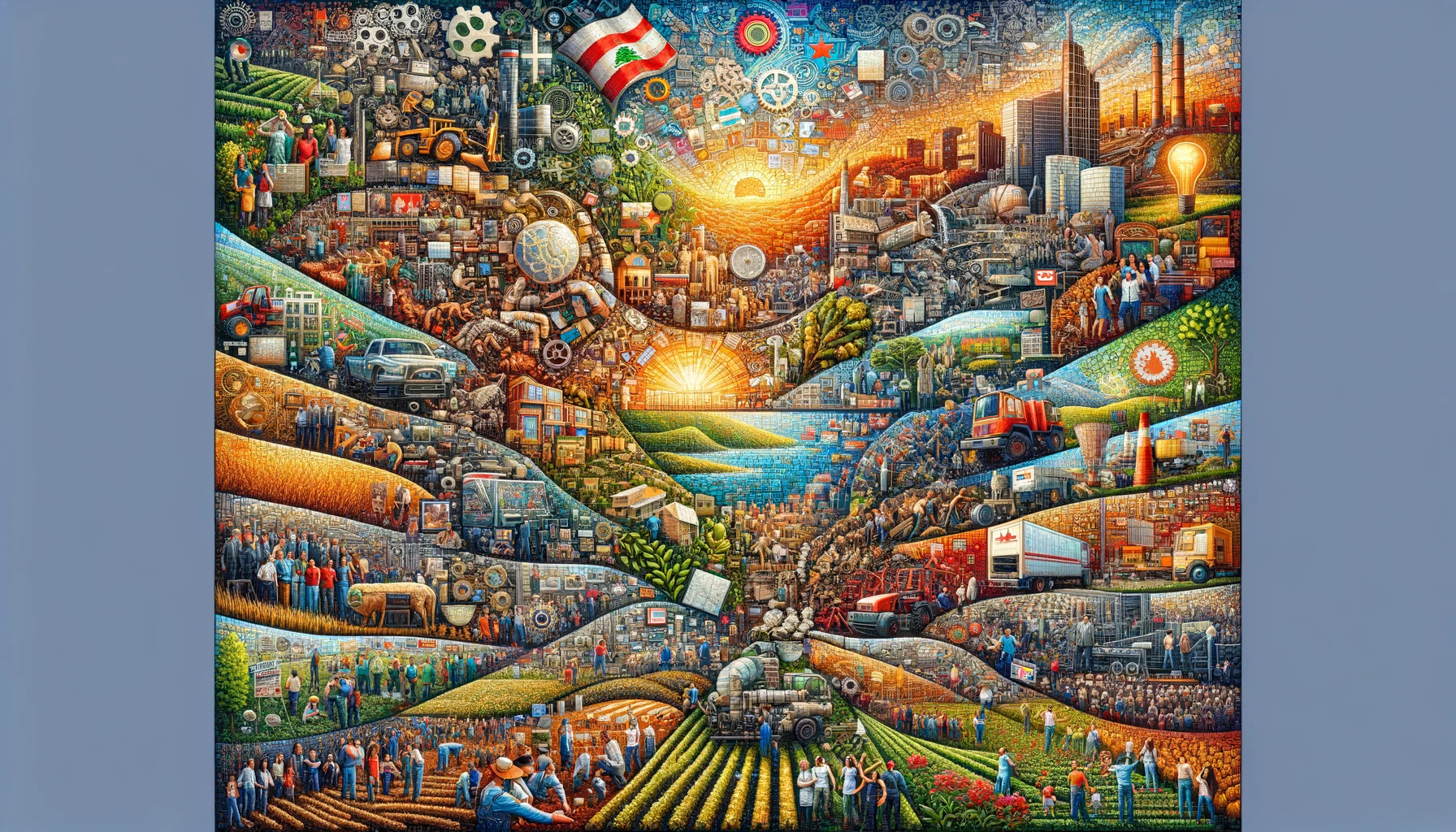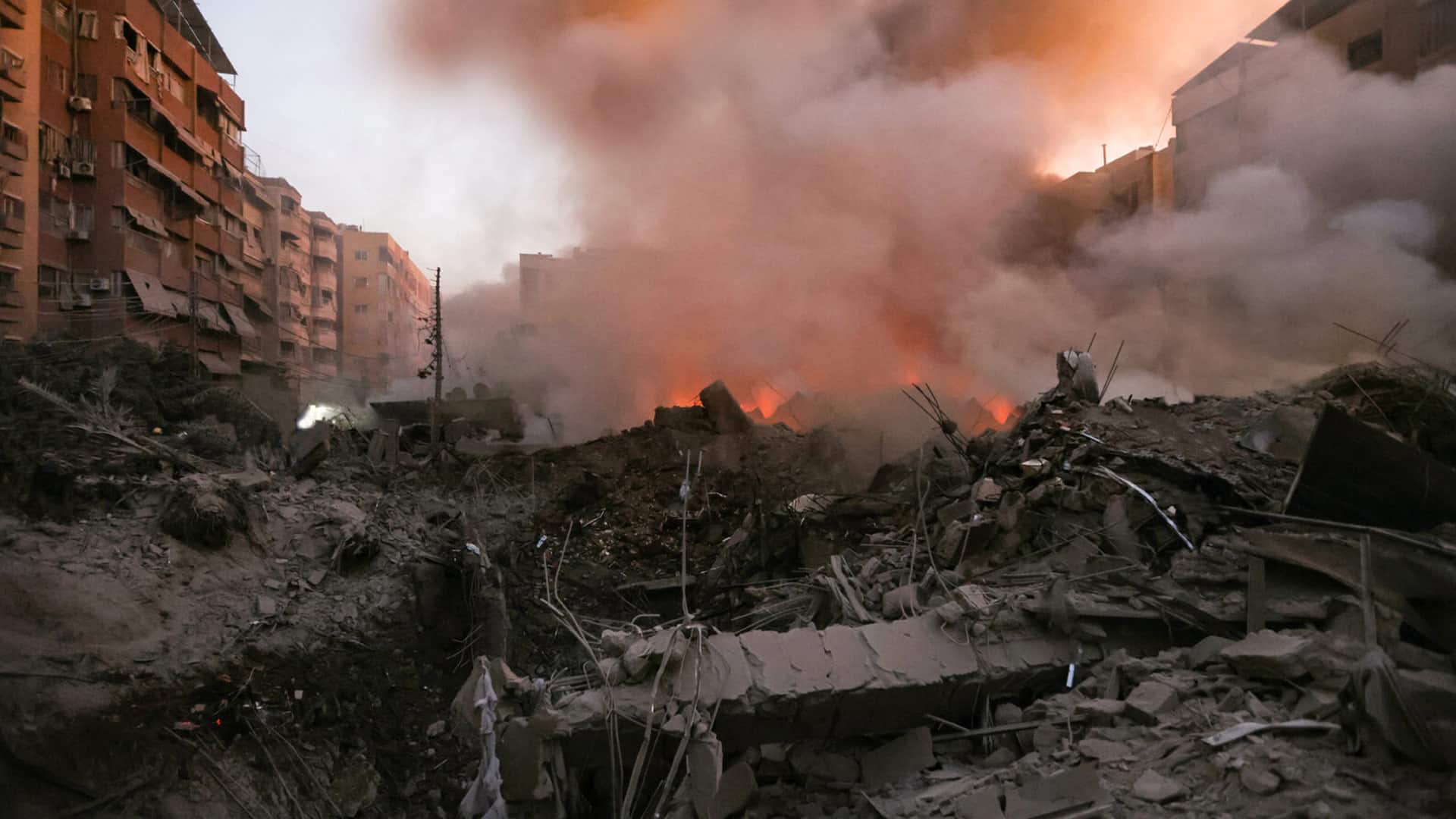Summary
In 2021, the Lebanese people must find new ways to re-constitute the country’s failed socio-economic order. Since October 2019, Lebanon’s ongoing financial crisis has laid bare the systemic frailties stemming from decades of exploitative rentier capitalism.1 For decades, the dominance of elite political and business interests has stripped Lebanon of basic public services, including social security, healthcare, and environmental protection. At the same time, the Lebanese state underperforms on almost every macroeconomic metric, leaving the country verging on bankruptcy.
In these circumstances, Lebanon operates as the virtual antithesis to a social democracy, which seeks to promote social justice within a liberal democratic, capitalist-oriented socio-economic structure. As Lebanese elites continue to make money, everyone else struggles – to varying degrees – to survive. The challenge ahead will be to craft reformist interventions, aimed at both government policy and community programming, capable of helping to build a fairer and more prosperous Lebanon.
Confronting Rentier Capitalism
In a macroeconomic sense, rentier capitalism has placed Lebanon and the Lebanese people in a glaringly precarious position. Since even before the civil war’s conclusion, the authorities have allowed political and business elites to indulge in rent-seeking activities, often related to banking and real estate.2 These policies led to large-scale neglect of the productive economic sectors, including agriculture and manufacturing, which could have reduced Lebanon’s reliance on imported food and other essential products. Import dependence and weak local industry have shackled Lebanon with a highly negative balance of trade — in 2019, Lebanon recorded a trade deficit of $15.5 billion, in which the total value of imports ($19.2 billion) far outweighed that of exports ($3.7 billion).
Macroeconomic challenges
Lebanon’s macroeconomic weaknesses have tangible, negative consequences for most people living in Lebanon. Before the current crises, estimates indicated that Lebanon relied on imports to meet between 65 and 80 percent of national food needs.3 Import dependence afflicts pharmaceuticals to an even greater extent, with almost all the country’s medications coming from abroad.4 Government policies have consistently favoured drug importers, often protecting the business of specific import companies with exclusive agency agreements. Local pharmaceutical manufacturers also struggle to compete against foreign drug companies due to high operating costs in Lebanon, which the government has allegedly done little to ameliorate.5
Regressive taxation policies further reinforce the dominance of rentier capitalists over the Lebanese economy, at the (literal) expense of most others. The state fails to efficiently collect taxation revenue – an IMF working paper indicated that, if Lebanon levied taxes in line with other middle-income countries, it could have raised an extra $19.92 billion based on 2019 figures.6 Most of this lost tax potential is traceable to generous top tax-brackets for income tax, along with lax enforcement. When the state does raise taxes, it does so inequitably. A 2020 study found that it could raise an additional $6.8 billion annually by raising and enforcing a higher top bracket of income tax for Lebanon’s wealthiest citizens. Instead, the current taxation system disadvantages non-elite Lebanese even further, relying heavily on regressive, broad-based taxes like VAT, which are levied against all citizens equally – regardless of their individual wealth.
Social challenges
As elites have dominated government decision-making, social protection policies have fallen by the wayside under Lebanon’s near-Randian model of capitalism. A recent UN position paper savaged the Lebanese government’s performance in delivering social services, which is plagued by administrative inefficiency, weak accountability mechanisms, mismanagement of financial resources, and ineffective coordination between different ministries and agencies.7 Much actual service delivery falls to the private sector and faith-based organisations, which receive payments from state budgetary allocations. In other cases, the state permits deeply flawed stop-gaps like the kafala system. This sponsorship-employment mechanism recruits poorly paid migrant workers to perform childcare, elderly care, and other services that suffer from abysmal government coverage. Meanwhile, precious little space exists for typical engines of a solidarity economy – such as cooperatives and trade unions – which could advocate for basic social justice demands on behalf of ordinary Lebanese.
Finally, Lebanon’s rentier capitalist model has jeopardised the country’s future, both in terms of climate change action and long-term job creation. Political corruption and poor regulation have acted as disincentives for developing green business models; indeed, critics allege that venal political leaders have long permitted flouting of environmental laws in exchange for bribes and other illicit incentives. At the same time, Lebanon has also failed to foster economic sectors based on innovation, despite hugely promising aspects of the country’s labour force. Lebanese youth enjoy comparative advantages within the West Asia and North Africa region, owing to strong foreign language skills and access to some of the region’s leading universities. Yet Lebanese youth struggled to find employment after graduation even before the current economic crisis began – a predicament not assisted by Lebanon’s lowly ranking of 87th on the 2020 Global Innovation Index.8 For these reasons, young Lebanese might reasonably shudder at the much-touted prospect of exploiting Lebanon’s natural gas reserves – yet another rent-seeking, short-term, and regressive solution to a country in need of real socio-economic transformation.
Policy Recommendations
Government policy
Naturally, many of Lebanon’s endemic socio-economic problems cannot be solved without direct state intervention. Yet, despite Lebanon’s deteriorating fiscal position, the current political leaders have shown no appetite for meaningful reform; as above, these same politico-business elites have benefited from the rentier capitalism system for decades. For this reason, we do not recommended progressive actors in Lebanon to work directly with the state as a primary policy option. Instead, it is important to support opposition groups and independent grassroots organisations.
The recommended support pillars are:
- Creating a fairer taxation system through increasing progressive taxes for wealthy Lebanese citizens, while also bolstering the Ministry of Finance’s enforcement capacity. Leading Lebanese economists have already proposed a multi-faceted reform approach of (1) making the tax system more progressive; (2) slashing tax evasion and / or avoidance; (3) introducing taxes with social objectives; and (4) considering a one-time wealth tax to address the current economic crisis.9
- Using additional taxation revenue, raised from levying progressive taxes, to invest in social services delivery and infrastructure. In the short-term, we should support opposition groups to resist cuts to social protection programming and lobby for universal social protection. The opposition could also receive support in preventing the adoption of stop-gap emergency measures, such as an emergency World Bank loan, which do not address core issues of social protection.
- Incentivising MSMEs, through tax concessions and direct funding, to scale up operations in productive sectors and invest in innovative business practices and the green economy. The Ministry of Economy and Trade developed a government MSME strategy in 2014; while still relevant, this plan must be updated to reflect the current economic situation. The urgent financial circumstances might necessitate emphasising certain elements of the MSME strategy, such as “improving access to markets.” At present, productive sectors like industry and agriculture stand out as attractive candidates for receiving technical support to produce essential goods and help tackle Lebanon’s various socio-economic challenges.
- Passing and enforcing stringent laws governing environmental protection and judicial independence. Beirut-based NGO Legal Agenda has recommended various actionable policy directions, including reforms to judicial appointment processes, removing political influence from judicial regulatory bodies, and limiting the jurisdiction of military courts.10 In terms of environmental regulation, Lebanon already has various environmental regulatory frameworks in place. In some cases, environmental legislation is confusing and contradictory – such as laws surrounding quarrying – and require consolidation. But even where legislation is clear, the devil emerges in enforcing those regulations. Sectors requiring immediate intervention include the quarrying and crushing sectors, solid waste management (SWM) and Liquid Waste Management (LWM). Efforts to increase compliance with existing laws would naturally benefit from progress on judicial independence, thus creating multiplier effects between different support pillars.
- Progressive actors in Lebanon should also work with state institutions such as the Ministry of Environment to pass forward-thinking environmental laws and policies, which pre-empt the impacts of climate change – a significant barrier to socioeconomic recovery. Essential to this aim will be introducing a climate change law that acknowledges the climate emergency and requires government to achieve mandatory targets related to climate mitigation and adaptation. Simultaneously, targeted activism can help push laws incentivising a quicker transition to renewable energies through parliament. One example would be a law allowing municipalities to adopt climate-specific fiscal (tax) instruments to discourage the use of fossil fuels. The introduction of upstream carbon tax (for example, on fossil fuel imports at point of entry) is another similar measure.
- Fostering the development of solidarity economy engines – such as effectual labour unions, cooperatives, and social enterprises – through workable legislative frameworks and direct material assistance and support. Campaigning for legal reform, especially within the Labour Law, is a key part of this pillar. In particular, progressive actors should focus on removing the requirement for ministerial approval to register a union and expanding protection from dismissal to any union member (article 50 of Labour Law). Rebuilding trust in labour unions will be another important part of re-establishing unions which do not serve the interests of employers and other elites. Awareness activities, especially those based in communities, should seek to link the workers’ movement to rights-based movements around housing, water, electricity, and the environment. The credit facility of the UAW mentioned earlier is worth studying in detail to assess the potential for expansion to other existing unions.
- Opposing privatisation and the fire-sale of public assets, until macroeconomic conditions stabilise and improve. At present, Lebanon has weak regulatory regimes in place and the value of state-owned assets are low. This means that, under these circumstances, privatisation would likely replace state-controlled monopolies with private monopolies.
- Opposing widespread civil service cuts, until there has been an impartial, comprehensive analysis of existing civil service structures that considers efficiency levels and quality of service delivery. The institutional review should also evaluate job opportunities and / or social protection options for public servants laid off.
- Opposing non-productive sector development, where that development would entrench rentier capitalism in Lebanon, amongst other potentially negative effects. A likely target would be the oil and gas sector, which threatens to facilitate a new stream of non-productive rent-seeking, while also contributing to environmental degradation.
- Supporting independent monitoring bodies, such as the Housing Monitor and various state-run regulators (e.g. Telecommunications Regulatory Authority, Electricity Regulatory Authority).




